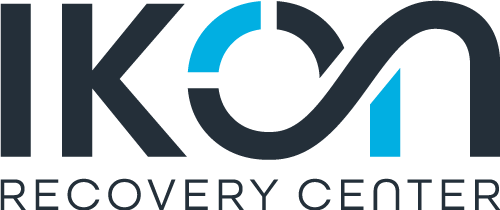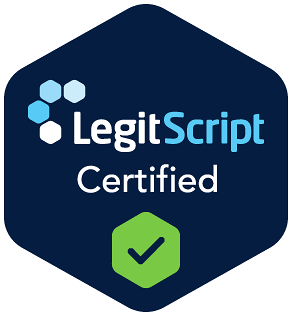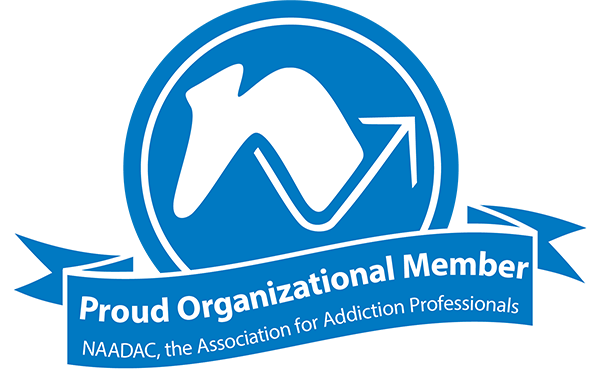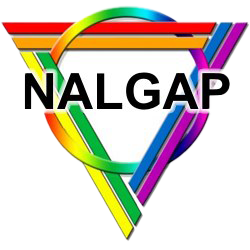Discover the Power of Compassionate, Individualized Care with Ikon’s Specialized Outpatient Care Programs
Outpatient Care For Substance
Use and Co-Occurring Disorders
What is Outpatient Care?
Outpatient care represents a collection of services and supports intended to assist you in the recovery process, delivered in a flexible, non-residential setting.[1] These services encompass a range of therapeutic interventions, counseling sessions, and educational programs tailored to meet your unique needs.[2] Outpatient care for addiction and co-occurring issues provides an opportunity to maintain daily life routines while receiving expert guidance and support, fostering sustainable recovery and increased empowerment.
Designed to meet the needs of individuals at various stages of the recovery process,[3] outpatient care can be appropriate as either an initial level of care or as a gradual step down from partial care programs or intensive outpatient programs (IOP).
The total length of time for outpatient care is heavily dependent upon your individual needs, but most people are able to attend scheduled appointments around their other commitments, allowing for maximum flexibility, typically less than nine total hours per week. Treatment is provided by a licensed professional and often via a multidisciplinary team.
Discover personalized care at Ikon Recovery Center, where we’re committed to addressing all your unique treatment needs. Contact us today to explore our New Jersey outpatient programs and find the ideal fit for your journey to lasting recovery.
Outpatient Care at a Glance
Program Length
Treatment Modalities
ASAM Level of Care Rating
How (and Why) Outpatient Care For Substance Use and Co-Occurring Disorders Works
Outpatient care for substance use and co-occurring issues operates by offering flexible, non-residential support tailored to your individual needs. This approach allows individuals to maintain their daily routines while still engaging in treatment and care, promoting sustained recovery and empowering individuals to navigate challenges in real-world settings.[4, 5]
Ongoing outpatient care allows for continual support in the continuum of care and recovery process, offering a transition point from more structured treatment or an entry point to receiving support for addiction issues. The personalized nature of outpatient care can also address the interconnected complexities of substance use and co-occurring mental health disorders, providing holistic healing solutions and contributing to long-term recovery principles.
Outpatient care interventions can vary, depending on your unique needs, but can include:
Ikon Recovery Center embraces the holistic approach to treatment for substance use and dual diagnosis issues, tailoring our outpatient programs to address your distinct needs. Our committed team collaborates with you to create a personalized whole-person plan, integrating a diverse array of evidence-based and mind-body therapies for comprehensive, impactful support that will enhance your recovery and help you fulfill your truest potential.
What additional support do you offer after treatment?
The transition from treatment back to everyday life can be challenging. But we’re here to help make it easier. Ikon Recovery is committed to helping you restore the balance in your life and build a brighter future that’s aligned with your new goals.
Additional support includes:
- Housing Assistance
- Credit Repair
- Continued Education Assistance
- Job Search Assistance
- Financial Guidance
- Community Service Opportunities
- Transportation Assistance
- Nutrition Guidance
The Efficacy of Partial Care Programs For Substance Abuse
Outpatient care has long been a cornerstone of the treatment process for substance use and co-occurring disorders, with many studies noting the importance of providing an avenue toward setting/maintaining goals for recovery and linkage to ongoing care.[6, 7] Outpatient services are critical to further engaging individuals in the recovery process from higher levels of care, in addition to welcoming others as the first stage in their treatment.
Additionally, there has been a growing awareness around of the benefits of integrated outpatient services for persons with co-occurring substance use and mental health disorders,[8] as people struggling with mental illness are far more likely to experience a substance use disorder than those who are not.[9]
Outpatient Care Program Alumni
Outpatient Services and the Continuum of Care
Outpatient services are level 1.0 within the continuum of care, according to the American Society of Addiction Medicine criteria.[10] This means that outpatient-based care is appropriate for individuals with mild to moderate substance use disorders who can benefit from a less intensive level of treatment (as compared to IOP, PHP, or inpatient). Outpatient services at level 1.0 provide essential support while allowing individuals to maintain their daily routines, making it a suitable choice for those seeking flexibility and personalized care in their recovery journey.
Ikon Recovery Center tailors a personalized care plan following a comprehensive assessment of your needs, incorporating ASAM Criteria, your goals, and insights from our team of professionals. Clients typically progress to a lower level of care upon achieving treatment goals or achieving stabilized recovery, ensuring continuous support aligned with their evolving needs.
Frequently Asked Questions about Outpatient Care for Substance Use and Co-Occurring Disorders
Is medication management part of outpatient care?
Medication management may be included as a part of your treatment, with healthcare professionals overseeing any prescribed medications as part of your overall treatment plan.
How is my progress measured in outpatient care?
While everyone’s individual needs are different, progress is generally tracked through ongoing assessments, therapy sessions, and the achievement of treatment plan goals, ensuring individualized and effective care.
Can my family members be involved in outpatient care?
Can my family members be involved in outpatient care?
They can. Family involvement is often encouraged at several levels of care at Ikon, as we offer family therapy and support sessions to enhance your overall treatment experience and recovery process.
How do I determine if outpatient care is the right level of care for me?
Our team will conduct a thorough assessment to determine the most suitable level of care for your needs.
Can I choose the frequency of my outpatient sessions?
Your treatment team will help you to determine the exact scheduling and frequency of your sessions, all of which afford a far greater sense of independence than higher levels of care.
Sources
[1] Department of Drug and Alcohol Programs. (n.d.). Department of Drug and Alcohol Programs. Retrieved from https://www.ddap.pa.gov/pages/default.aspx on November 22nd, 2023
[2] Types of Treatment. (n.d.). Office of Addiction Services and Supports. Retrieved from https://oasas.ny.gov/treatment/types on November 22nd, 2023
[3] Gastfriend, D. (n.d.). The ASAM CRITERIA and Addiction Treatment Matching Chief Architect, CONTINUUM TM -The ASAM Criteria Decision Engine. Retrieved from https://www.naadac.org/assets/2416/david_gastfriend_ac15_asamcriteria.pdf on November 22, 2023
[4] Overview of Substance Use Disorder (SUD) Care Clinical Guidelines: A Resource for States Developing SUD Delivery System Reforms. (2017). Retrieved from https://www.medicaid.gov/sites/default/files/state-resource-center/innovation-accelerator-program/iap-downloads/reducing-substance-use-disorders/asam-resource-guide.pdf on November 22, 2023
[5] Morey, L. C. (1996). Patient Placement Criteria. Alcohol Health and Research World, 20(1), 36–44. Retrieved from https://www.ncbi.nlm.nih.gov/pmc/articles/PMC6876533/ on November 22, 2023
[6] Ho, C., & Adcock, L. (2017). Summary of Evidence. In www.ncbi.nlm.nih.gov. Canadian Agency for Drugs and Technologies in Health. Retrieved from https://www.ncbi.nlm.nih.gov/books/NBK507689/ on November 22, 2023
[7] Baird, A., Cheng, Y., & Xia, Y. (2023). Determinants of outpatient substance use disorder treatment length-of-stay and completion: the case of a treatment program in the southeast U.S. Scientific Reports, 13(1). Retrieved from https://doi.org/10.1038/s41598-023-41350-8 on November 22, 2023
[8] McGovern, M. P., Lambert-Harris, C., Gotham, H. J., Claus, R. E., & Xie, H. (2012). Dual Diagnosis Capability in Mental Health and Addiction Treatment Services: An Assessment of Programs Across Multiple State Systems. Administration and Policy in Mental Health and Mental Health Services Research, 41(2), 205–214. Retrieved from https://doi.org/10.1007/s10488-012-0449-1 on November 22, 2023
[9] Co-Occurring Disorders and Other Health Conditions. (2023, July 26). Www.samhsa.gov. Retrieved from https://www.samhsa.gov/medications-substance-use-disorders/medications-counseling-related-conditions/co-occurring-disorders on November 22, 2023
[10] American Society of Addiction Medicine. (2022). About the ASAM Criteria. Retrieved from https://www.asam.org/asam-criteria/about-the-asam-criteria on November 22, 2023
